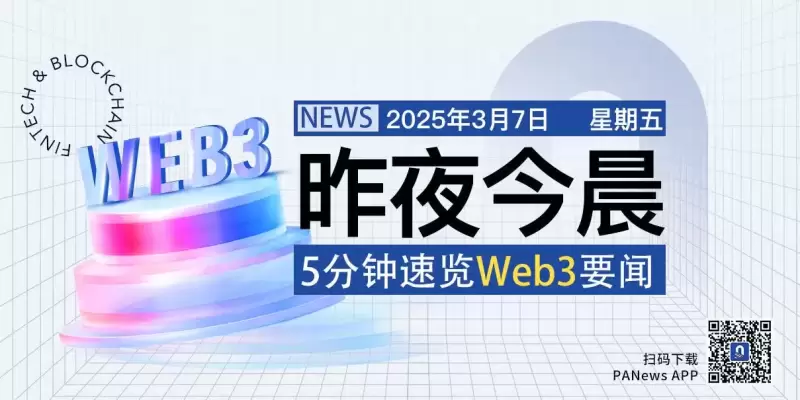 |
|
 |
|
 |
|
 |
|
 |
|
 |
|
 |
|
 |
|
 |
|
 |
|
 |
|
 |
|
 |
|
 |
|
 |
|
正統派ベンチャーキャピタルは、マイクロソフト、アルファベット、アップルなどに対抗するための分散型AIのためのリソースを提供することは決してないだろう。唯一の方法は、ユーザー所有のトークンベースのシステムで株式融資を置き換えることです、と分散型 AI 協会会長のマイケル J. ケーシー氏は言います。

The six most heavily capitalized companies in the U.S. are engaged in a spending war as each tries to outrace the others toward artificial intelligence (AI) supremacy.
米国で最も資本の多い企業6社が、それぞれが人工知能(AI)の優位性を目指して他社を追い越そうとする支出合戦を繰り広げている。
Together, Microsoft, Alphabet, Apple, Meta, Amazon and Nvidia are booking $1.8 trillion in annual revenues, a number that would put their combined inflows in 10th place of global country rankings if we viewed them as a proxy for national gross domestic product (GDP) – just behind the gross output of Brazil's 220 million people.
Microsoft、Alphabet、Apple、Meta、Amazon、Nvidia は合わせて年間 1 兆 8,000 億ドルの収益を記録しています。この数字は、これらの企業を国内総生産 (GDP) の代用として見た場合、世界の国別ランキングで 10 位に入る数字です。 ) – ブラジルの2億2,000万人の総生産のすぐ後ろにあります。
Meanwhile, The Six have a combined market capitalization of $15 trillion, capturing an astounding one third of the entire S&P 500 index.
一方、ザ・シックスの時価総額は合わせて15兆ドルで、S&P500指数全体の3分の1という驚異的なシェアを占めている。
Despite – or perhaps because of – this unprecedented scorecard, these companies are relentlessly competing for world domination. Doing what great American companies have always done, they’re unleashing a competitive instinct that, in a normal capitalist economy of diversified goods and services, is the core driver of technological progress.
この前例のないスコアカードにもかかわらず、あるいはおそらくそのおかげで、これらの企業は世界制覇を目指して容赦なく競争しています。偉大なアメリカ企業が常にやってきたことと同様に、彼らは競争本能を解き放ち、商品やサービスが多様化する通常の資本主義経済において、テクノロジーの進歩の中核となる原動力となっている。
So, don’t worry about The Six. Worry about us.
だから、ザ・シックスについては心配しないでください。私たちのことを心配してください。
Because our problem amid the dizzying advance of AI is definitely not one of a shortfall in technological progress. It’s that this particular form of technological progress comes with risks to human autonomy and safety. And to mitigate them, the question of who controls AI’s development and whether their incentives are aligned with the broadest base of humanity is fundamental.
なぜなら、AIの目まぐるしい進歩の中で私たちが抱えている問題は、決して技術進歩の不足によるものではないからです。それは、この特殊な形の技術進歩には人間の自律性と安全に対するリスクが伴うということです。そして、それらを軽減するには、誰が AI の開発をコントロールするのか、そして AI のインセンティブが人類の最も広範な基盤と一致しているかどうかという問題が根本的に重要です。
Just as was the case for Alphabet’s Google, Meta’s Facebook and Amazon’s marketplace, the development of these six companies’ large language models (LLMs) and other AI machinery is occurring within closed, black-box systems.
Alphabet の Google、Meta の Facebook、Amazon のマーケットプレイスの場合と同様に、これら 6 社の大規模言語モデル (LLM) やその他の AI 機構の開発は、閉じられたブラックボックス システム内で行われています。
They’ve ingested the troves of data we all unwittingly poured into internet sites, and have built highly complex codebases into which no one has visibility. Between them, they dominate all layers of the AI stack: the storage (Amazon Web Services), the chips for computation (Nvidia), the AI models (Microsoft, with its investment in Open AI), the data (Alphabet and Meta) and the devices we use to interact with AI services (Apple).
彼らは、私たちが知らず知らずのうちにインターネット サイトに注ぎ込んだ大量のデータを取り込み、誰も見ることができない非常に複雑なコードベースを構築しました。これらの間では、ストレージ (Amazon Web Services)、計算用チップ (Nvidia)、AI モデル (Open AI への投資を行っている Microsoft)、データ (Alphabet と Meta)、および AI スタックのすべての層を支配しています。 AI サービスと対話するために使用するデバイス (Apple)。
They might be competing with each other, but they form a vertically diversified oligopoly. Or rather, given the undeniable power that their technology can wield over people’s lives, they’re an oligarchy. Indeed, the secrecy around the means by which they exercise that power is characteristic of most oligarchical dictatorships.
それらは互いに競合しているかもしれませんが、垂直方向に分散された寡占を形成しています。むしろ、彼らのテクノロジーが人々の生活に及ぼす否定できない力を考えると、彼らは寡頭制です。実際、その権力を行使する手段に関する秘密主義は、ほとんどの寡頭独裁国家の特徴である。
Toward the latter phase of the Web2 era, people eventually came to understand Bruce Schneier’s memorable observation that we are not the internet platforms’ customers; we are their products. With that awareness, we’re now also finally opening our eyes to how these companies have long been incentivized to modify people’s behavior in unhealthy ways to maximize shareholder returns.
Web2 時代の後期に向けて、人々は最終的に、私たちはインターネット プラットフォームの顧客ではないというブルース シュナイアーの忘れられない見解を理解するようになりました。私たちは彼らの製品です。その認識により、私たちは今、これらの企業が株主利益を最大化するために人々の行動を不健全な方法で変えるよう長い間どのように動機付けられてきたかについて、ようやく目を開かせつつあります。
It is no longer controversial to talk of the psychological harm done by the algorithms of Facebook, YouTube, Tik Tok and their ilk, which were blatantly designed to exploit dopamine releases to encourage continued, addictive engagement.
Facebook、YouTube、Tik Tok、およびその同類のアルゴリズムによってもたらされる心理的危害について語ることは、もはや議論の余地がありません。これらのアルゴリズムは、継続的な中毒性の関与を促進するために、ドーパミンの放出を悪用するようにあからさまに設計されています。
When Frank McCourt and I published Our Biggest Fight in March 2024, we were overwhelmed by parents’ horror stories of the harm social media had done to their kids. And then a Harris Poll coordinated by NYU Professor Johathan Haidt found that young people are just as concerned: nearly half of Gen Z wishes that TikTok and X (Twitter) never existed, even as 83% of the same cohort said they spend four hours a day or more on social media.
フランク・マッコートと私が2024年3月に『Our Biggest Fight』を出版したとき、私たちはソーシャルメディアが子供たちに与えた害についての親たちの恐ろしい話に圧倒されました。そして、ニューヨーク大学のヨハサン・ハイト教授がコーディネートしたハリス世論調査では、若者たちも同様に懸念していることが判明した。Z世代のほぼ半数は、TikTokやX(Twitter)が存在しなかったことを望んでおり、同じ世代の83%が1つの時間に4時間費やしていると答えているにもかかわらず、ソーシャルメディアで一日以上。
So, if we now know of the harms, why on earth would we extend the same oligopolistic control structure into the AI era? AI will put the Web2 oligopoly on steroids.
では、今私たちがその害悪を知っているのであれば、いったいなぜ同じ寡占的な制御構造を AI 時代にも拡張するのでしょうか? AI は Web2 の寡占をさらに強化するでしょう。
This is why I believe the creation of distributed, collectively owned open-source AI is a vitally important use case for Web3 and blockchain technology. It’s the only way to avoid the problem of misaligned incentives.
これが、分散型の共同所有のオープンソース AI の作成が Web3 とブロックチェーン テクノロジーの非常に重要なユースケースであると私が信じている理由です。それが、インセンティブの不均衡の問題を回避する唯一の方法です。
Sure, there are technical challenges, such as the latency that, for now, makes distributed machine learning inefficient, the capacity limits of on-chain data, or the privacy risks inherent to public blockchains. But innovators are already hard at work on outside-the-box solutions to these problems, motivated by the huge economic and reputational payoff promised by overcoming them. And when they do, the inherent information advantages enjoyed by open systems over closed systems will give decentralized AI a fighting chance. Achieve that, and “DeAI” will represent not only the right moral path but also the economic winner.
確かに、現時点では分散機械学習を非効率にしている遅延、オンチェーンデータの容量制限、パブリックブロックチェーンに固有のプライバシーリスクなど、技術的な課題はあります。しかし、イノベーターたちはすでに、これらの問題を克服することで約束される莫大な経済的および評判的見返りを動機として、これらの問題に対する既成概念にとらわれない解決策に熱心に取り組んでいます。そして、そうなったとき、クローズド システムに対してオープン システムが享受する固有の情報上の利点により、分散型 AI に戦う機会が与えられます。それを達成すれば、「DeAI」は正しい道徳的道を示すだけでなく、経済的な勝者も表すことになるでしょう。
Here’s the rub: time is not on our side. And the fight is heavily lopsided. As cited above, The Six have an unprecedented $15 trillion war chest.
ここで問題が発生します。時間は味方ではありません。そして戦いは大きく偏ったものとなっている。上で引用したように、シックスは前例のない 15 兆ドルの軍資金を持っています。
In the 2000s, Facebook and Google learned that their high-value share prices gave them a currency with which to relentlessly acquire startups that could either enhance or threaten their dominance. Now, The Six have even greater capacity to buy up and integrate whatever breakthroughs in AI are coming, be it in independent AI agents or more efficient systems of compute
2000年代、FacebookとGoogleは、自社の高価値な株価が、自社の優位性を高めるか脅かす可能性のある新興企業を容赦なく買収するための通貨となることを知った。現在、6 社は、独立した AI エージェントであれ、より効率的なコンピューティング システムであれ、AI のあらゆる画期的な進歩を買い取り、統合するさらに大きな能力を備えています。
免責事項:info@kdj.com
提供される情報は取引に関するアドバイスではありません。 kdj.com は、この記事で提供される情報に基づいて行われた投資に対して一切の責任を負いません。暗号通貨は変動性が高いため、十分な調査を行った上で慎重に投資することを強くお勧めします。
このウェブサイトで使用されているコンテンツが著作権を侵害していると思われる場合は、直ちに当社 (info@kdj.com) までご連絡ください。速やかに削除させていただきます。
-

-

- Gamefi:ゲームとファイナンスの動的な融合
- 2025-04-03 16:10:12
- GameFiは、ブロックチェーンテクノロジーを活用してプレイと投資の方法を変革するゲームとファイナンスの動的な融合です。
-

-

-

-

-

-

-





























































